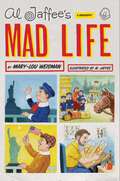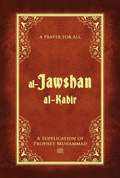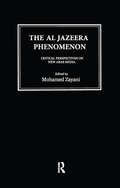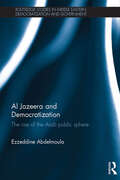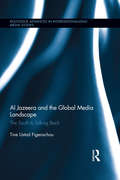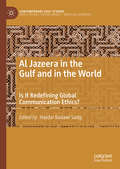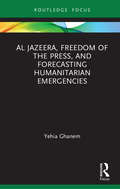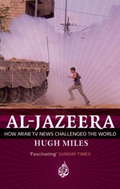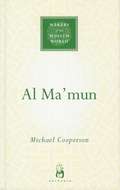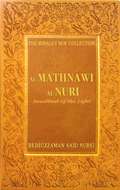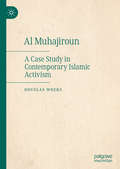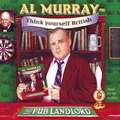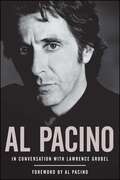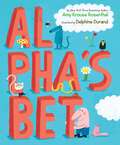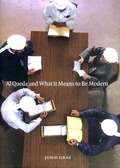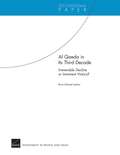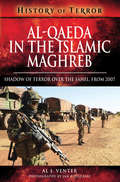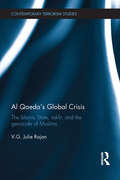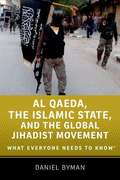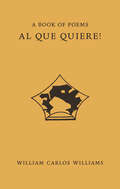- Table View
- List View
Al Gore: Vice President
by Rebecca StefoffThrough the dauntless pursuit of a dream or the unwavering belief in an idea, each of the individuals featured in these fascinating biographies has changed the world.
Al Islami Foods: Partnering for Growth
by Michael Norris Lynda M. ApplegateIn 2018, Al Islami Foods CEO Marwan Al Garem and Chairman Saleh Saeed Lootah have to decide on a potential investment partner. They hope to find the best match for a strategic investment in their Dubai-based halal foods company from a list of three global food companies.
Al Jaffee's Mad Life: A Biography
by Mary-Lou Weisman“One of the great cartoonists of our time.” –New Yorker cartoonist Arnold Roth The remarkable story of one of America’s most prolific and beloved cartoonists, Al Jaffee, with dozens of original color illustrations. Jaffe’s career in cartooning stretches back to 1941—with early humor pieces for Timely Comics, a precursor to Marvel Comics—but the iconic artist remains best known for the brilliant Fold-In cartoons he invented at Bill Gaines’s Mad magazine in 1964. The cerebral and sardonic illustrations have inspired generations of Mad readers—including Stephen Colbert, R. Crumb, Gary Larson and Charles Shultz—to embrace a firm and healthy irreverence towards the status quo. New York Times columnist and bestselling author Mary-Lou Weisman (My Middle-Aged Baby Book) helps Jaffe tell his remarkable story.
Al Jawshan Al Kabir
by Yesilova KoseAl-Jawshan al Kabir is one of the prayers most frequently recited by Muslims. Some Muslims prefer to read the entire prayer by themselves, whereas others share it with their friends or household and make it part of their daily service. The Arabic text of this beautiful prayer book have been written in the most elegant art of calligraphy and pages are ornamented with colorful illuminations.
Al Jazeera Phenomenon: Critical Perspectives on New Arab Media
by Mohamed ZayaniFew phenomena in the Arab world are more controversial than Al Jazeera - the satellite television news channel that, despite its brief history, has made its impact known throughout the world and changed the face of a formerly parochial Arab media.This timely collection of articles, many by Arabic-speaking scholars, gives us more information and analysis of the network - and how it has affected the public and even the foreign policies of Western governments - than any other of the very few books published in English up to now.The book provides rare insights into Al Jazeera's politics, its agenda, its programs, its coverage of regional crises, and its treatment of the West. The authors attempt to gauge the station's impact on ordinary Arab viewers, understand its effect on an increasingly visible Arab public sphere, and map out the role it plays in regional Arab politics. The image of Al Jazeera that emerges from this book is much more complex than its depiction in American media. It reveals the powerful role that the network plays in shaping ideas and reconstructing Arab identities during a crucial juncture in Middle Eastern history and politics.
Al Jazeera and Democratization: The Rise of the Arab Public Sphere (Routledge Studies in Middle Eastern Democratization and Government)
by Ezzeddine AbdelmoulaAl Jazeera and Democratization analyses the increasing role of the media in political transformations with a special emphasis on the Arab world. Taking the Al Jazeera media network as a case study, the author explains how engaging the public and providing platforms for open debate and free expression contributed to the emergence of a new vibrant Arab public sphere. The launch of Al Jazeera in 1996 was a significant event that led to subsequent changes both in Arab media and politics. Among these changes, the Arab spring is certainly the most remarkable. This unprecedented phenomenon has already resulted in political change in a number of countries and is expected to generate a democratizing wave and reshape the face of the region. The Arab spring provides us with a telling empirical example where the interplay between media and politics is manifest. The public sphere that has emerged out of this newly communicative environment has undoubtedly played its role in the current political transformations. In this context, Arab democratization is no longer an abstract, it is rather a developing process that needs our attention and requires concerted scholarly efforts. Highly topical, this book provides a fresh theoretical perspective on Arab democratization in light of the Arab Spring, and is essential reading for researchers and students of Middle East Politics, Media Studies and Democratization.
Al Jazeera and the Global Media Landscape: The South is Talking Back (Routledge Advances in Internationalizing Media Studies)
by Tine Ustad FigenschouThis book analyzes how and why Al Jazeera English (AJE) became the channel of choice to understand the massive protests across the Arab world 2011. Aiming to explain the ‘Al Jazeera moment,’ it tracks the channel’s bumpy road towards international recognition in a longitudinal, in-depth analysis of the channel’s editorial profile and strategies. Studying AJE from its launch in mid-November 2006 to the ‘Arab Spring’, it explains and problematizes the channel’s ambitious editorial agenda and strategies, examines the internal conflicts, practical challenges and minor breakthroughs in its formative years. The Al Jazeera-phenomenon has received massive attention, but it remains under-researched. The growth of transnational satellite television has transformed the global media landscape into a complex web of multi-vocal, multimedia and multi-directional flows. Based on a combination of policy-, production- and content analysis of comprehensive empirical data the book offers an innovative perspective on the theorization of global news contra-flows. By problematizing the distinctive characteristics of AJE, it examines the strategic motivation behind the channel and the ways in which its production processes and news profile are meant to be different from its Anglo-American competitors. These questions underscore a central nexus of the book: the changing relationship between transnational satellite news and power.
Al Jazeera in the Gulf and in the World: Is It Redefining Global Communication Ethics? (Contemporary Gulf Studies)
by Haydar Badawi SadigThis book examines the deeper meaning of the advent of the Al Jazeera Media Network with regard to ongoing debates on global communication ethics, not only in the global public sphere but also in terms of its influence on new non-Western approaches to media ethics. Rather than simply calling for international perspectives on media ethic is a unique and significant addition to the literature on the topic. The book investigates whether Al Jazeera’s vision, mission, and operations are actually inspired by the New World Information Order debates over contra-flow and hegemony. Further, the book identifies ways of developing new non-Western approaches to global communication ethics, as it suggests injecting more cosmopolitanism in global news reporting and commentary.
Al Jazeera, Freedom of the Press, and Forecasting Humanitarian Emergencies (Routledge Focus on Media and Humanitarian Action)
by Yehia GhanemThis book reveals how Al Jazeera and its news coverage became a force for change politically, socially and culturally in the Middle East in general, and the Arab world in particular. It explores pre-Al Jazeera and post-Al Jazeera representations of humanitarian crises and identifies a potentially significant partnership between the news organizations and humanitarian actors. By tracing the evolution of the news network, the book sheds new light on how Al Jazeera effected change in the Global South. The research identifies a significant relationship between Al Jazeera’s news coverage and the ability to forecast international humanitarian actions, politically and militarily. It also explores the potential for continued partnership between humanitarian actors and news organization to identify crises in their early stages. Lastly, the book examines the distinct, original lexicon developed by Al Jazeera for humanitarian affairs and shows how the network influenced international media stylebooks and changed humanitarian coverage on key global issues. A compelling examination of Al Jazeera’s news operation that will be of interest to students and scholars of media studies, political communication, journalism and news reporting, international politics and the media, and Arab media.
Al Jazeera: How Arab TV News Challenged the World
by Hugh MilesWith more than fifty million viewers, Al Jazeera is one of the most widely watched news channels in the world. It's also one of the most controversial. Set up by the eccentric Emir of Qatar, who turned a failed BBC Arabic television project into an Arab news channel, Al Jazeera quickly became a household name after September 11th by delivering some of the biggest scoops in television history, including airing a taped speech from Osama bin Laden. Lambasted as a mouthpiece for Al Qaeda, little is actually known about Al Jazeera and its operations.Financed by one of the weathiest countries in the world, Al Jazeera quickly established itself as the premiere news channel in the Islamic world by covering events Arabs cared about in a way they had never seen before. However, accusations of ties to Al Qaeda continue to plague it. Their journalists have been accused of spying for everyone from Mossad to Saddam Hussein, sometimes simultaneously. This the story behind the Arab news channel that makes the news.
Al Jazeera: How Arab TV News Challenged the World
by Hugh MilesWith more than fifty million viewers, Al Jazeera is one of the most widely watched news channels in the world. It's also one of the most controversial. Set up by the eccentric Emir of Qatar, who turned a failed BBC Arabic television project into an Arab news channel, Al Jazeera quickly became a household name after September 11th by delivering some of the biggest scoops in television history, including airing a taped speech from Osama bin Laden. Lambasted as a mouthpiece for Al Qaeda, little is actually known about Al Jazeera and its operations.Financed by one of the weathiest countries in the world, Al Jazeera quickly established itself as the premiere news channel in the Islamic world by covering events Arabs cared about in a way they had never seen before. However, accusations of ties to Al Qaeda continue to plague it. Their journalists have been accused of spying for everyone from Mossad to Saddam Hussein, sometimes simultaneously. This the story behind the Arab news channel that makes the news.
Al Ma'mun: The Heirs Of The Prophets In The Age Of Al-ma'mun (Makers of the Muslim World)
by Michael CoopersonCaptures the achievements of this Sufi thinker and founder of gnostic hurufism.
Al Mathnawi Al Nuri
by Bediuzzaman Said NursiIMPORTANT NOTE: This publisher may alter and/or omit important sections from Risale-i Nur Collection. In order to obtain a translation that adhere to original Risale-i Nur Collection, please check other publishers. This book summarizes all the topics in the Risale-i Nur, the author's great multivolume commentary on the Qur'an, and provides an outline for the later, more famous and massive treatise. Now available in English, it offers an overview of the material treated in the Risale-i Nur and an opportunity to browse through brief entries such as Flower, Spark, and Whiff, each of which is a keyword linked to a passage in the Qur'an or a figure of speech in a theological argument.
Al Muhajiroun: A Case Study in Contemporary Islamic Activism
by Douglas WeeksGrounded in nine years of ethnographic research on the al Muhajiroun/Ahlus Sunnah Wal Jamaah movement (ALM/ASWJ), Douglas Weeks mixes ethnography and traditional research methods to tell the complete story of al Muhajiroun. Beginning with three core events that became a primer for radical Islamic political thought in the UK, Al Muhajiroun, A Case Study in Islamic Activism traces the development of the movement form its incipient beginnings to its current status. Based on his extensive interaction with the group and its leaders, Weeks contextualizes the history, beliefs, methods, and differences between ALM/ASWJ, al Qaeda, and the Islamic State so that the group and the threat it poses is comprehensively understood.
Al Murray The Pub Landlord Says Think Yourself British
by Al MurrayThe Pub Landlord says: My last book was all about helping Great Britain get back on her feet by providing an injection of Common Sense to make up for all the balls and waffle we've been subjected to in this once great nation of ours. This time it's personal - I'm offering to step out from behind the taps here and try to show you the way. This time I'm giving you a man to man chat, a chance for you sit yourself down and stand on your own two feet. The first principle of Helping Yourself is this: in order to take one step forward, we must first take two steps backwards. Because you will only truly know that you are moving forwards if you have first seen what it's like to go backwards. This book is designed to equip you to take those crucial backwards steps. In fact, once you have read Think Yourself British you will undoubtedly become one of the most backwards people you know. And because you bought this book, together we can fix Broken Britain.(P)2009 Hodder & Stoughton
Al Murray: The Pub Landlord's Book of British Common Sense
by Al MurrayWe live in an age of waffle, mumbo-jumbo and bad thinking. We're forever being fed dodgy information by so-called experts, scientists, opinion-makers, politicians, journalists and jumped-up little graduates. Their combined bad thinking includes: *the idea that no one should win in running races at school, in case the losers get upset*the idea that owning a house in France is a decent way to spend your money *the idea that we should all talk about our feelings and that would make things better*speed cameras*mineral water*hummus*and the fact that everyone reckons they've got asthma. Why do we believe this nonsense? Because, as a nation we've forgotten the basic elements of common sense. Thank God then for Al Murray. Together with the collecting thoughts of hia locals, he's here to put good old-fashioned British common sense back where it belongs.(P)2007 Hodder & Stoughton Limited
Al Pacino: The Authorized Biography
by Lawrence GrobelFor more than a quarter century, Al Pacino has spoken freely and deeply with acclaimed journalist and bestselling author Lawrence Grobel on subjects as diverse as childhood, acting, and fatherhood. Here, for the first time, are the complete conversations and shared observations between the actor and the writer; the result is an intimate and revealing look at one of the most accomplished, and private, artists in the world.Pacino grew up sharing a three-room apartment in the Bronx with nine people in what he describes as his "New York Huckleberry Finn" childhood. Raised mostly by his grandparents and his mother, Pacino began drinking at age thirteen. Shortly after he was admitted to the renowned High School for Performing Arts, his classmates nicknamed him "Marlon," after Marlon Brando, even though Pacino didn't know who Brando was. Renowned acting coach Charlie Laughton saw Pacino when he was nineteen in the stairwell of a Bronx tenement, and the first words out of Laughton's mouth were "You are going to be a star." And so began a fabled, lifelong friendship that nurtured Al through years of not knowing where his next meal would come from until finally -- at age twenty-six -- he landed his first salaried acting job. Grobel and Pacino leave few stones unturned, touching on the times when Pacino played piano in jazz clubs until four a.m. before showing up on the set of Scarecrow a few hours later for a full day's work; when he ate Valium like candy at the Academy Awards; and when he realized he had been in a long pattern of work and drink. As the pivotal character in The Godfather trilogy and the cult classic Scarface, Pacino has enshrined himself in film history. He's worked with most of Hollywood's brightest luminaries such as Francis Ford Coppola, Sidney Lumet, Michael Mann, Norman Jewison, Brian De Palma, Marlon Brando, Robert De Niro, Gene Hackman, Sean Penn, Johnny Depp, Michelle Pfeiffer, Hilary Swank, and Robin Williams, among many others. He was nominated for eight Academy Awards before winning the Oscar for Best Actor for his role in Scent of a Woman. Pacino still seems to prefer his work onstage to film and, if he's moved by a script or play, is quick to take parts in independent productions. Al Pacino is an intensely personal window into the life of an artist concerned more with the process of his art than with the fruits of his labor, a creative genius at the peak of his artistic powers who, after all these years, still longs to grow and learn more about his craft. And, for now, it's as close to a memoir as we're likely to get.
Al Pha's Bet
by Amy Krouse RosenthalWonderful things are being invented every day in Al Pha's world-fire, the wheel, even shadows! His big chance to be part of history comes when the King announces that the twenty-six recently invented letters need to be put in order. Al makes a bet with himself that he's the man for the job. Through a series of funny events, he eventually finds the perfect order for the letters, and the king rewards him by naming his creation the "Alphabet." Sure to entertain and engage young readers, this book turns the ABC's inside out. Kids will laugh at the quirky illustrations and clever wordplay, while wondering where the alphabet really did get its order.
Al Qaeda and What It Means to Be Modern
by John GrayIn this compact analysis, Gray (European thought, London School of Economics) demonstrates that, contrary to popular opinion, the ideology of Al Qaeda is both Western and modern. Touching on the philosophical roots of Al Qaeda, the brief history of the global free market, the collapse of states, and the rise of unconventional warfare, he revises the conventional wisdom of the post-September 11th era. He confronts the Western faith in global development, technology, and democracy, revealing dangerous flaws in America's drive to create a global economy and worldwide democracy. Annotation ©2004 Book News, Inc., Portland, OR (booknews.com)
Al Qaeda in Its Third Decade: Irreversible Decline or Imminent Victory?
by Brian Michael JenkinsAl Qaeda in Its Third Decade: Irreversible Decline or Imminent Victory?
Al Qaeda in the Islamic Maghreb: Shadow of Terror over The Sahel, from 2007 (History Of Terror Ser.)
by Al J. VenterInsurgencies in Iraq, Afghanistan, Syria, Yemen and elsewhere the majority linked to al Qaeda are in the news on an almost daily basis. But very little surfaces about a festering insurgency that has been on the go for six years in West Africa under the acronym of AQIM, or al Qaeda in the Islamic Maghreb. This low-level series of guerrilla conflicts is widespread and sporadic, covering an area as vast as Europe. Nigeria has been drawn into the equation because its Boko Haram insurgent faction maintains close ties with AQIM and Islamic State.For now though, the focus is on Mali where several jihadist groups despite formal peace agreements remain active. Involved is the French army and air force as well as the United Nations Multidimensional Integrated Stabilization Mission in Mali (MINUSMA), the European Union Training Mission in Mali (EUTM) as well as the European Union Capacity Building Mission (EUCAP).The insurrection that fostered all this broke out early 2012 when President Franois Hollande announced the beginning of Operation Serval. Five hours later the first squadrons of French Gazelle helicopter gunships began attacking Islamist columns. A day later French fighter jets based in Chad, almost 2,000 kilometers away, were making sorties against rebel ground targets in northern Mali.
Al Qaeda's Global Crisis: The Islamic State, Takfir and the Genocide of Muslims (Contemporary Terrorism Studies)
by V. G. RajanThis book focuses on the crises facing Al Qaeda and how the mass killing of Muslims is challenging its credibility as a leader among Islamist jihadist organizations. The book argues that these crises are directly related to Al Qaeda’s affiliation with the extreme violence employed against Muslims in Iraq, Syria, Afghanistan and Pakistan in the decade since 9/11. Al Qaeda’s public and private responses to this violence differ greatly. While in public Al Qaeda has justified those attacks declaring that, for the establishment of a state of ‘true believers’, they are a necessary evil, in private Al Qaeda has been advising its local affiliates to refrain from killing Muslims. To better understand the crises facing Al Qaeda, the book explores the development of Central Al Qaeda’s complex relationship with radical (mis)appropriations and manifestations of takfir, which allows one Muslim to declare another an unbeliever, and its unique relationship with each of its affiliates in Iraq, Syria, Afghanistan and Pakistan. The author then goes on to consider how the prominence of takfir is contributing to the deteriorating security in those countries and how this is affecting Al Qaeda’s credibility as an Islamist terror organization. The book concludes by considering the long-term viability of Al Qaeda and how its demise could allow the rise of the even more radical, violent Islamic State and the implications this has for the future security of the Middle East, North Africa and Central/South Asia. This book will be of much interest to students of political violence and terrorism, Islamism, global security and IR.
Al Qaeda, The Islamic State, And The Global Jihadist Movement: What Everyone Needs to Kno
by Daniel BymanOn the morning of September 11, 2001, the entire world was introduced to Al Qaeda and its enigmatic leader, Osama bin Laden. But the organization that changed the face of terrorism forever and unleashed a whirlwind of counterterrorism activity and two major wars had been on the scene longbefore that eventful morning. In Al Qaeda, the Islamic State, and the Global Jihadist Movement: What Everyone Needs to Know, Daniel L. Byman, an eminent scholar of Middle East terrorism and international security who served on the 9/11 Commission, provides a sharp and concise overview of Al Qaeda,from its humble origins in the mountains of Afghanistan to the present, explaining its perseverance and adaptation since 9/11 and the limits of U. S. and allied counterterrorism efforts. The organization that would come to be known as Al Qaeda traces its roots to the anti-Soviet jihad in Afghanistan in the 1980s. Founded as the Soviets withdrew from Afghanistan, Al Qaeda achieved a degree of international notoriety with a series of spectacular attacks in the 1990s; however, it wasthe dramatic assaults on the World Trade Center and the Pentagon on 9/11 that truly launched Al Qaeda onto the global stage. The attacks endowed the organization with world-historical importance and provoked an overwhelming counterattack by the United States and other western countries. Within ayear of 9/11, the core of Al Qaeda had been chased out of Afghanistan and into a variety of refuges across the Muslim world. Splinter groups and franchised offshoots were active in the 2000s in countries like Pakistan, Iraq, and Yemen, but by early 2011, after more than a decade of relentlesscounterterrorism efforts by the United States and other Western military and intelligence services, most felt that Al Qaeda's moment had passed. With the death of Osama bin Laden in May of that year, many predicted that Al Qaeda was in its death throes. Shockingly, Al Qaeda has staged a remarkablecomeback in the last few years. In almost every conflict in the Muslim world, from portions of the Xanjing region in northwest China to the African subcontinent, Al Qaeda franchises or like-minded groups have played a role. Al Qaeda's extreme Salafist ideology continues to appeal to radicalizedSunni Muslims throughout the world, and it has successfully altered its organizational structure so that it can both weather America's enduring full-spectrum assault and tailor its message to specific audiences. Authoritative and highly readable, Byman's account offers readers insightful and penetrating answers to the fundamental questions about Al Qaeda: who they are, where they came from, where they're going-and, perhaps most critically-what we can do about it.
Al Que Quiere!: Al Que Quiere!
by William Carlos Williams Jonathan CohenThe centennial edition of William Carlos Williams’s early ground-breaking volume, containing some of his best-loved poems Published in 1917 by Four Seas Press, Al Que Quiere! was William Carlos Williams’s third poetry book—his breakthrough volume—and contains some of his best-loved poems (“Tract,” “Apology,” “El Hombre,” “Danse Russe,” “January Morning,” and “Smell!”), as well as a Whitmanesque concluding long poem, “The Wanderer,” that anticipates his epic masterpiece Paterson. Al Que Quiere! is the culmination of an experimental period for Williams that included his translations from Spanish. The Spanish epigraph of Al Que Quiere! is from the short story “El hombre que pareci´a un caballo” (“The Man Who Resembled a Horse”) by the Guatemalan author Rafael Are´valo Marti´nez. This centennial edition contains Williams’s translation of the story (made with the help of his father), as well as a fascinating chapter from a book of conversations with Williams, I Wanted to Write a Poem, in which he comments on the individual poems.


